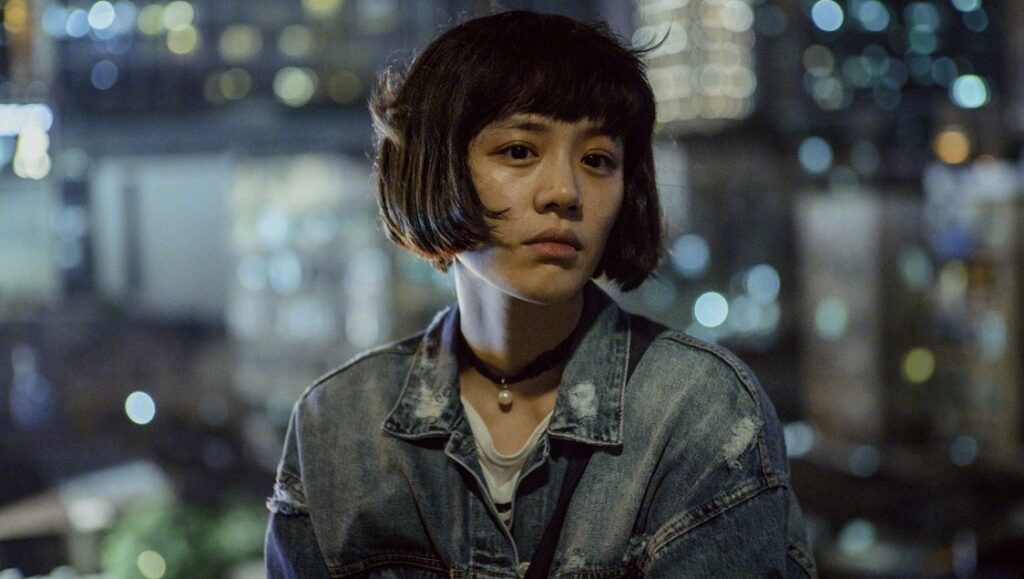Chinese filmmaker Lou Ye’s The Shadow Play is a vicious work that descends into the depths of corruption in both a private enterprise (the events of the film are based on those of the real company named here) and in State government (the implications of which are censored substantially, though not completely — thanks to some news broadcasting voiceover and images in the closing credits) over a span of decades. The film follows the ‘reform and opening up’ of China, between the 1980s and the 2000s, and fashions a neo noir plot that dissects the era’s worst and most deadly excesses — here, in particular, the practices within the real estate and city planning sectors. As in Lou’s previous films, this tale of slowly accumulating entropy takes as its focus a small network of interconnected people — principally, a trio of friends and lovers who all have leadership positions at Violent Gold Properties, and their families, as well as the young cop who has his own stake in their history — and observes as their lives fall into disorder. But where some of Lou Ye’s more recent films about society’s underbelly might have left some wondering exactly what the director’s stake in the project’s were, The Shadow Play leaves no such doubts. Lou delves into the sociocultural realities of his characters as a mean of capturing the environments and the illicit activities of an era, and invokes pop music of the time that has a familiar connotation to its hopes, dreams, and the potential bound-up in China’s reform period — a dimension that, for those who recognize it, gives the subsequent plot, its conspiring and murder, a potently tragic dimension.
But where some of Lou Ye’s more recent films about society’s underbelly might have left some wondering exactly what the director’s stake in the project’s were, The Shadow Play leaves no such doubts.
Much has been made on Chinese social media of what other historical details are referenced or submerged within this construction of the past (e.g. whether the Tiananmen incident is an inciting reason for two of the central characters being torn apart, limiting their expressions of love for one another to on-and-off affairs and clandestine holidays with an illegitimate daughter). All this contrasts, however, with the comparative hollowness of the film’s two younger protagonists, who represent The Shadow Play’s greatest flaw. While the film richly fashions a world around its older generation, and their internal psychologies, it does neither for Jing Boran’s intrepid detective, Yang Jiadong, nor Ma Sichun’s Tang Xiaonuo. Despite both being central to the narrative, and to its visual identity (propelled through time and space with fleet editing and dexterous cinematography), each character is given little interiority, suggesting that Lou himself may not quite know how to connect to this generation, or what makes them tick. This is ultimately a minor qualm with a film to which Lou equips a subversive bite, an appealingly direct plot, and the intricate technical stylings of a kind of more commercial genre film, the likes of which he’s never really attempted before. In his introduction essay, our Editor-in-Chief Sam C. Mac, considering all of these cinematographic elements, likened The Shadow Play to Michael Mann’s Blackhat; but there’s also a good deal of David Fincher, and in particular his The Girl with the Dragon Tattoo, in Lou’s film. However, there is one major divergence, too: Where Fincher returned to analog images, media, and evidence to facilitate the protagonist’s unravelling of a national and intergenerational mystery, The Shadow Play structures its aesthetic around the cinema image itself. The camera’s movement through various images, textures, and temporal settings becomes the means of discovering, and disentangling, the threads of the central conspiracy. It’s an arresting and decisive formal statement; in many ways, Lou has made a film that autonomously solves itself.
Part of Lou Ye: Every Face Is a Mask.


Comments are closed.